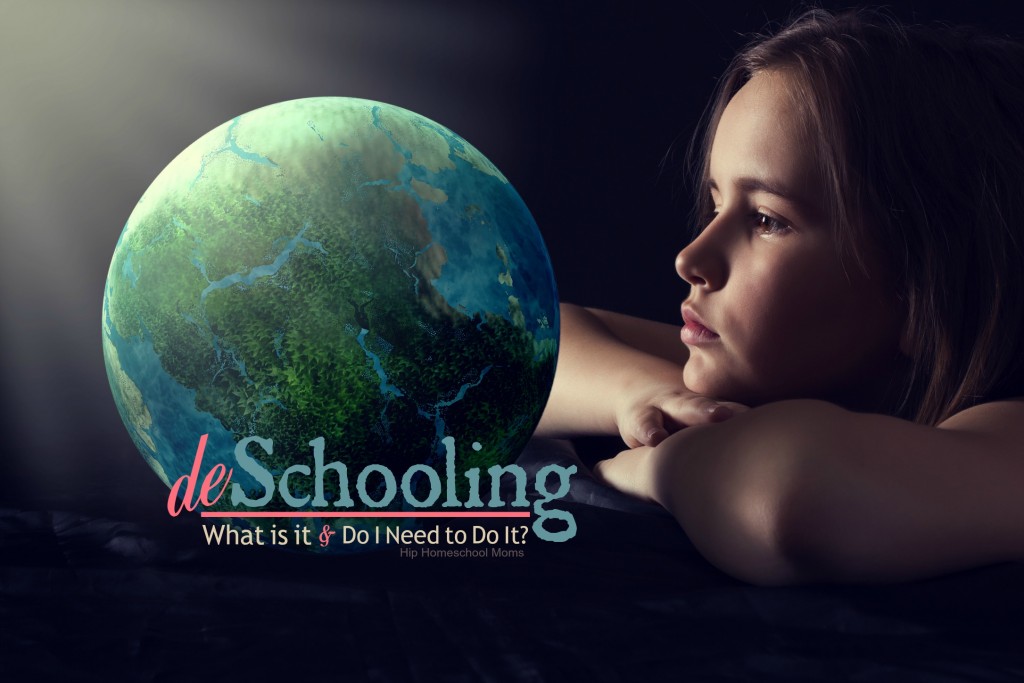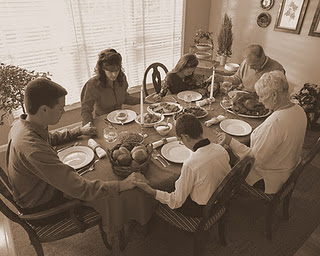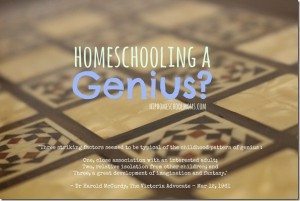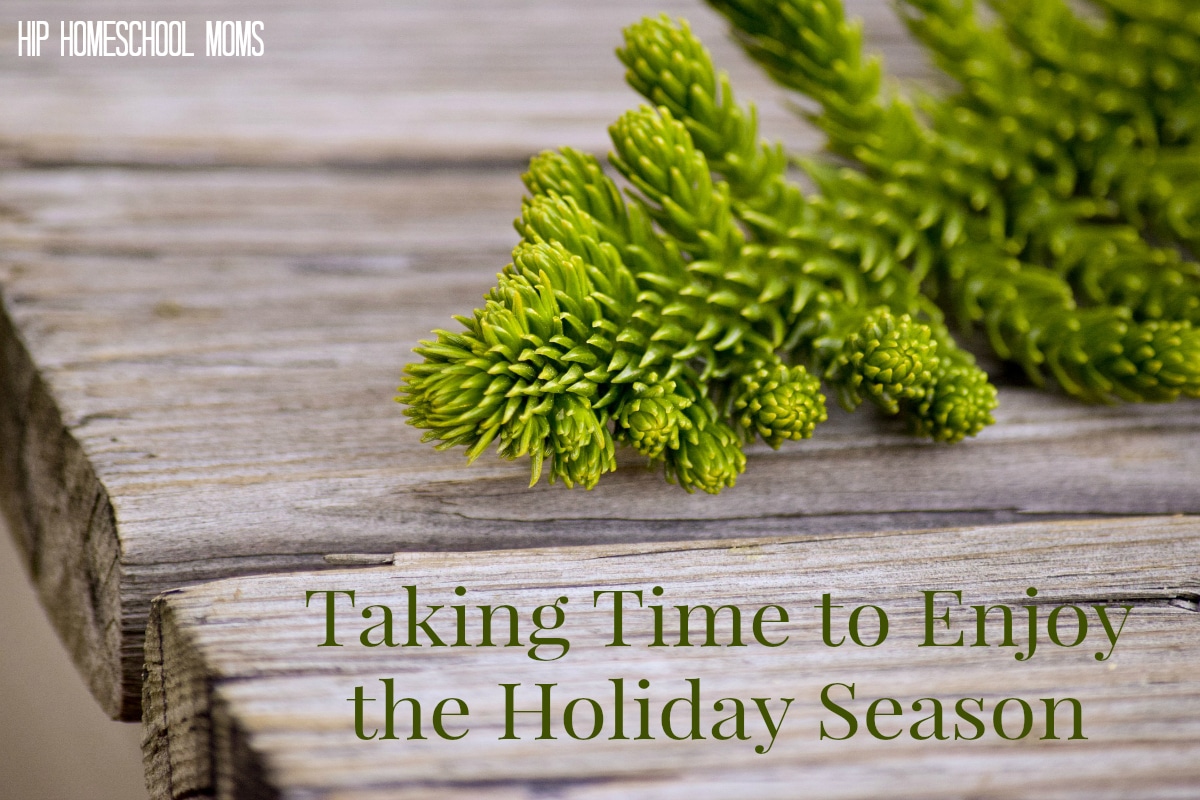Deschooling: What Is It and Do I Need to Do It?
Have you heard of “deschooling”? If you are one of the growing number of families choosing to take your children out of public or private school in order to homeschool, you may have heard it said that you should consider deschooling before you begin homeschooling. But what is deschooling?
What is deschooling?
Deschooling has to do with getting rid of the ideas you and your children have about school and how it “should” be done. Your ideas may be slightly different than someone else’s depending on your own school experiences. These ideas, though, may be similar to this list (below) of some of the ideas many of us have about how school should be done.
When we think of “school,” many of us think that we should:
- have class from 8 a.m. until 3 p.m. each day
- have the student(s) sit in desks (or at least the kitchen table) to do school work
- have a rigid schedule (example: math class is from 8 a.m. until 8:45 a.m., history is from 9:00 a.m. until 9:45 a.m., etc.)
- have school only on week days
- have the student(s) learn subjects that are determined by the teacher with no input from the student(s)
- take grades (daily grades, test grades, etc.)
- do a certain number of math problems for each lesson or write spelling words 10 times each, etc.
- use textbooks and workbooks to learn and complete school work
- use materials from a certain grade level for the child in that grade
- have a quiet environment in which to do school work
- have students of different ages/grades do separate work
I personally love structure. I love a predictable schedule. I always enjoyed textbooks and workbooks when I was a student. Those things worked for me, and it’s just fine if those things work for your child and you. However, deschooling has more to do with getting to know each other better and learning together in the process. You and your child need to realize that structure and predictability and textbooks aren’t the only ways to learn.
This list (above) covers ideas about how many (probably most) of us experienced school as we grew up. But, as I’ve homeschooled these past 23 years, I’ve learned that school does not have to be done like this! And that is where deschooling comes in.
Deschooling is a time of transition for both parent/teacher and child/student. It’s a few weeks or months (or whatever period of time you think you need) of taking a break, having fun being creative together, discovering new interests, and forming a closer relationship.
It’s a time of learning to learn no matter what the situation. It’s a time for both parent and child to realize, maybe for the first time, that learning doesn’t have to look like the list above. It doesn’t have to happen on certain days and at certain times and in certain places. It doesn’t have to be boring. It doesn’t have to be super structured.
You might find that you learn just as much and have more fun by doing some of these activities together:
- playing games
- doing sewing projects
- making arts and crafts
- doing yard work
- going on field trips
- reading living books
- playing sports
- exercising
- cooking
- doing housekeeping projects
- taking lessons (dance, piano, art)
Deschooling, like homeschooling, will look a little different for each family. Don’t be afraid to try new things and have fun. Enjoy being a family and spending time together and learning together. Enjoy this new adventure! Allow deschooling to be a bridge between how school and learning used to be and how they can be from now on.
If you’re worried that deschooling will waste half (or more) of a school year, consider this!
I understand that the thought of not doing formal academics might be scary–especially for those of us who think of the way public schools “do school” as being the right way to do it. But consider this. If your child is refusing to do school work or is miserable doing it, he or she probably isn’t learning much anyway. Taking time off to deschool is a way of continuing to do some educational activities (so your child is still learning) while preparing that child to have a better attitude toward more formal schooling (so future schooling will be more fun and beneficial). In other words, you’ve probably got nothing to lose by taking some time to deschool, and it may make a huge difference in your child’s ability and willingness to learn from now on!
Have you had experience deschooling? Do you have tips or ideas to share? Or maybe you’re about to begin homeschooling your children who formerly attended public or private school. We would love to hear your thoughts, ideas, and comments!










I’m considering pulling my youngest child out of public school. I’ve struggled to get him to stay on course with Math and Reading. Now he’s great at math. However, trying to find the right skills to teach him to read, the school has not helped at all since the CORE was established. It completely threw him off and he had to repeat 3rd grade. I’m wanting to try Homeschoolong and he has Sked to be homeschooled, however to get my ex, his dad to agree to it ….he works for the public school. Further, can someone please lead me on how to get started?! I have no idea to get it set up. All I want is what is best for my son. Are there websites to follow?
Kirsten, we have a private Facebook community where you can ask questions of other homeschooling moms. You might want to join. It’s private, so only other moms in the community can see who’s a member there and what questions you ask. Here’s the link to go there and ask to be added: https://www.facebook.com/groups/HipHomeschoolMomsCommunity/. Also, we have a post that contains links to quite a few articles from the HHM site that have to do with getting started homeschooling. Here’s the link to that article: http://wp.me/p1swZe-6IG. I hope these are helpful to you!
When I decided to take my son out of public school in the 7th grade and homeschool him, I was not prepared. It was an emergency withdrawal. He had been threatened by a gang that was extremely violent, and the school system would do nothing to stop the harassment. One of my friends who homeschooled told me to deschool him while I prepared for teaching him. I had him watch documentaries that I selected and write a one paragraph paper about each one for the first month. In that time, he calmed down, relaxed into staying home and learning at home, and I was able, with books from my library and the public library to put together a decent curriculum for him. That month made all the difference to him and to me. If we hadn’t done that, I think we would have tried to do ‘real school’ at home, the way so many people try to do. Knowing me, and knowing him, we would have failed miserably at it.
This is a very informative article. I think my homeschool is a hybrid. We do workbooks to give us some structure on what they need to learn. But we go to the library a lot, museums, parks, crafts, painting, play doh, educational computer games. Sometimes we homeschool on the weekends. My kids sleep in. We don’t homeschool every day M-F. It works for us, and my kids are succeeding in their educational goals! I also think that it’s important for homeschooling to be fluid and ever changing. I’ve been homeschooling for three years now, and I suspect that our style might change over the years. That should be just fine as long as my kids happy, healthy and continue to learn.
I remember when I started homeschooling my mother was like, “you should get them up early and set a schedule” That’s not us!